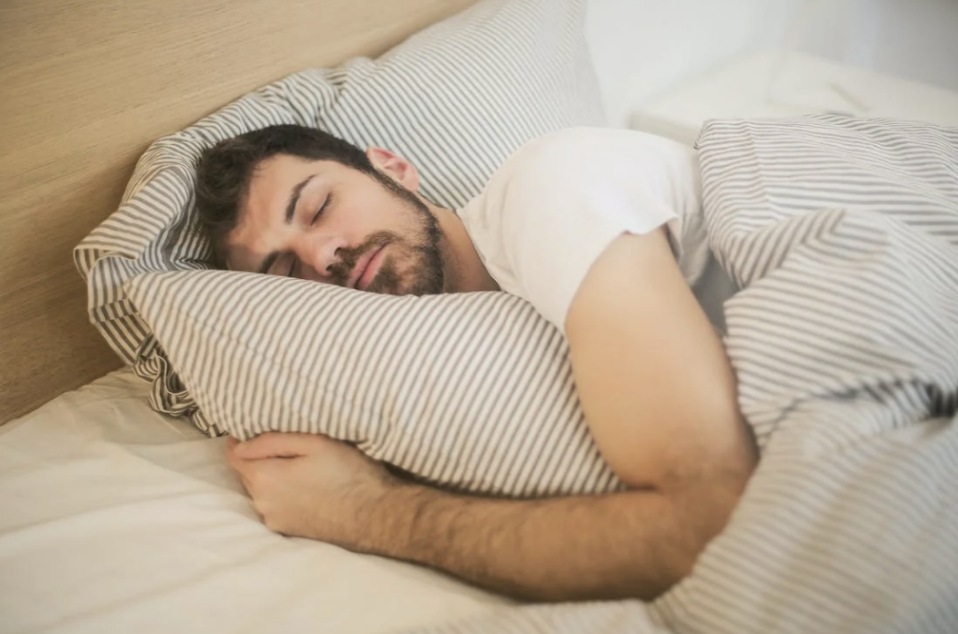

Sleep apnea is a dreadful sleep disorder that causes pauses in breathing when the individual suffering from it is sleeping. Due to this reason, having a good night's sleep is like an impossible thing for sleep apnea patients. Thankfully, Continuous Positive Airway Pressure (CPAP) therapy has been a game-changer for individuals suffering from it and other related sleep disorders.
However, one of the common challenges CPAP users face is discomfort caused by ill-fitting masks. Over the years, there have been several innovations in this field, and today, we have various types of CPAP masks, including Nasal masks, Nasal pillow mask, Full-face CPAP mask and many more.
Still, the discomfort while sleeping with the face mask on persists. To address this issue, CPAP mask manufacturers have continuously innovated to improve comfort and user experience. In this blog, we will explore the recent innovations in CPAP mask design that aim to provide better patient comfort. So dive in if you are looking for a suitable CPAP mask that facilitates all your requirements.
In recent years, CPAP mask manufacturers have embraced minimalist designs, aiming to reduce the size and overall bulk of the masks. For instance, full-face masks feel pretty heavy and claustrophobic. Thus, smaller, lighter masks offer several advantages, including reduced facial pressure and enhanced comfort. Another example is Philips' dreamwear nasal CPAP mask, designed to reduce the tubing at the front of the face and route the airflow through the mask's frame. This innovative yet minimalist mask design allowed the patients to have freedom of movement while sleeping.
Traditionally, CPAP masks have utilized foam or silicone cushions to create a seal. However, some users found these materials uncomfortable or experienced skin irritation. To address this, manufacturers have introduced masks with silicone gel cushions. These cushions are softer and more conforming to the face, reducing pressure points and discomfort. As these silicone cushions provide a gentle and consistent seal, the patients can change their sleep positions at night, which aids in tackling the problems faced by restless sleepers.
CPAP users have varying head sizes and shapes, which makes it challenging to find a comfortable fit. Thus, it became necessary for the manufacturers to do something about the headgear. Innovations in headgear design now offer more excellent customization options. Some masks feature adjustable headgear with multiple adjustment points, allowing users to personalize the fit to their unique facial contours. Customizable headgear can reduce pressure on sensitive areas, preventing discomfort and mask leaks.
Putting on and removing CPAP masks can be a hassle, especially for those with dexterity issues. Magnetic headgear clips have become a convenient innovation, simplifying mask applications. These magnetic clips make it easy to secure the headgear, eliminating the need for complex clasps or buckles. Users can quickly attach or detach the mask with minimal effort, improving the overall user experience.
Movement in sleep is involuntary, and every 7 out of 10 individuals tend to constantly change sleep positions. A common issue with CPAP masks disrupting sleep is when users need to change positions, causing the mask to leak or become dislodged. New swivel elbow designs in masks allow for greater freedom of movement without compromising the mask's seal. The swivel elbow pivots as the user changes positions, maintaining an effective seal and minimizing leaks, ultimately contributing to better comfort and uninterrupted sleep.
Many individuals are light sleepers, and any sort of slight sound can wake them up. The noise generated by the airflow from a CPAP machine can be disruptive to the user and their bed partner. Innovations in CPAP mask design include improved venting systems that reduce noise levels significantly. Quiet ventilation systems allow users to enjoy a peaceful night's sleep without being disturbed by the noise generated by their CPAP machine.
Soft inserts against the nostrils (nasal pillows) are popular for many CPAP users because of their lightweight design and minimal facial contact. However, discomfort caused by pressure on the nostrils or nasal bridge has been a common issue. Gel pillows are a recent innovation designed to address this problem. They provide a soft and pliable interface for the nostrils, reducing discomfort and irritation. Gel pillows conform to the user's anatomy, ensuring a comfortable and secure fit.
Memory foam is known for its ability to conform to the body's shape. CPAP mask manufacturers have integrated memory foam cushioning into their designs to enhance user comfort. These memory foam cushions adapt to the contours of the face, distributing pressure evenly and reducing the risk of pressure sores. They also help create a secure seal, improving overall therapy efficacy.
Some CPAP mask manufacturers use advanced 3D scanning technology to create custom-fit masks. You can scan your facial dimensions to get your mask designed and manufactured according to your unique facial features. This customization feature ensures an excellent fit with optimal comfort, reducing the chances of mask leaks or discomfort.
Exhalation vents in CPAP masks have also seen remarkable improvements. Exhalation diffusers help disperse the exhaled air quietly and effectively, preventing it from blowing directly on you or your bed partner. This innovation reduces noise, draft, and discomfort, making it easier for users to adjust to CPAP therapy and maintain uninterrupted sleep.
CPAP mask has emerged as a game changer in improving the comfort and user experience for individuals with sleep apnea and other sleep-related disorders. The recent innovations in CPAP mask design have been a significant step in this journey, offering users greater comfort and better therapy compliance. From minimalist designs to gel cushions, magnetic headgear clips, and customizable options, CPAP mask manufacturers ensure to meet their user's diverse needs and preferences.
These innovations are also improving the overall success of CPAP therapy by reducing mask leaks, discomfort, and disturbances during sleep. We can also expect even better designs as technology advances, ultimately helping more people embrace and benefit from this life-changing therapy, improving the quality of life and well-being.
Leave a comment